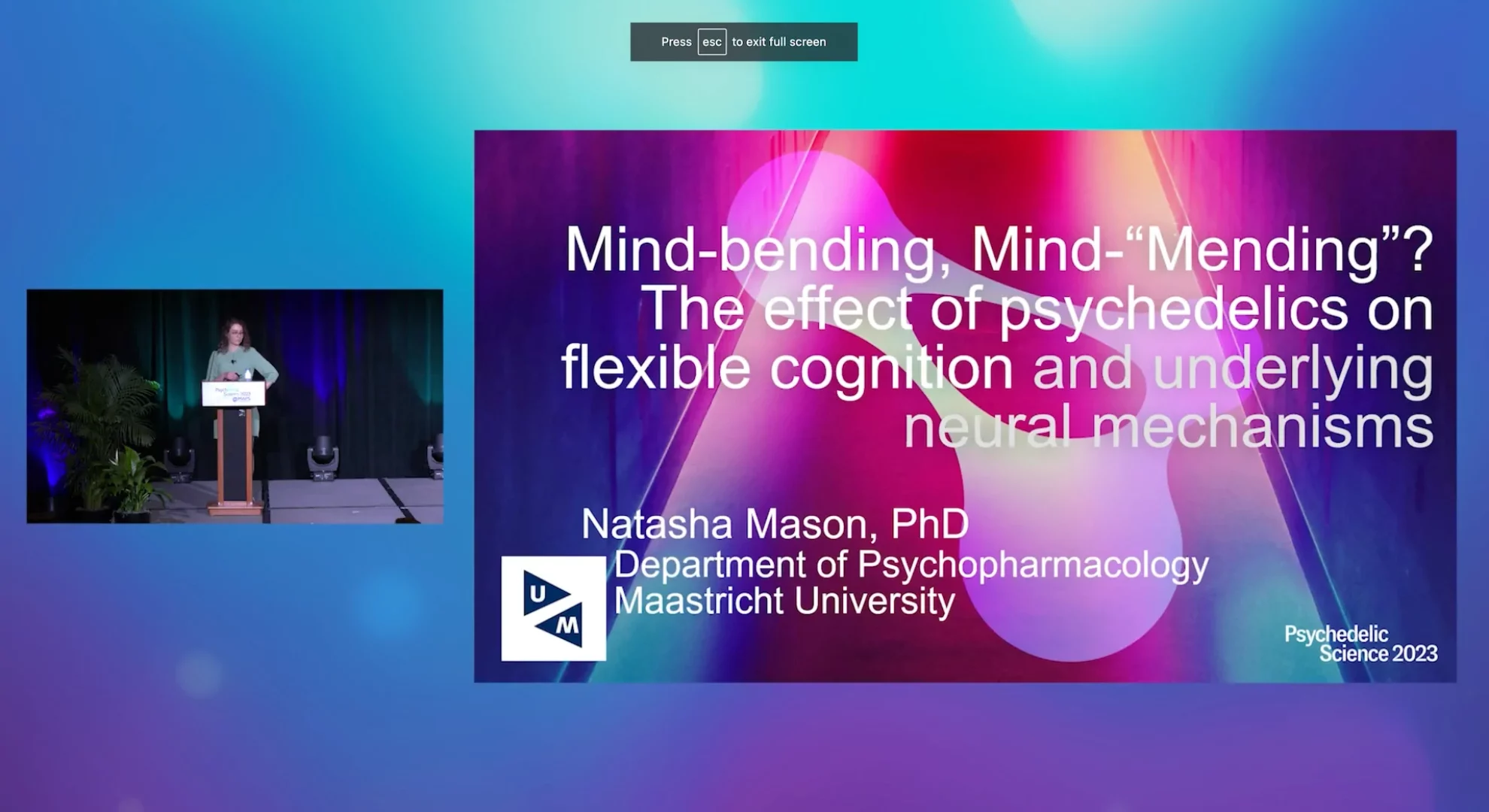
Mind-bending, mind–“mending”? The effect of psychedelics on flexible cognition, and underlying neural mechanisms
Flexible cognition, such as creative thinking and perspective taking (empathy), is an essential cognitive ability linked to all areas of our everyday functioning. Thus, finding a way to enhance it is of broad interest. A large number of anecdotal reports suggest that the consumption of psychedelic drugs can enhance creative thinking and empathy; however, scientific evidence is sometimes lacking. In this lecture, I will give an overview of the work that has been done, investigating whether psychedelics alter creativity and empathy. I will then present data from a series of studies in which we investigated the effects of the psychedelics ayahuasca and psilocybin on aspects of flexible cognition. Through these studies, we have demonstrated that there is a time- and construct-dependent effect of psychedelics on both creativity and empathy. Furthermore, utilizing an ultrahigh field multimodal brain imaging approach, we found that acute and persisting changes in creativity were predicted by within- and between-network connectivity of the default mode network. Taken together, evidence suggests some support to historical claims that psychedelics can influence aspects of flexible cognition, potentially indicating them as a tool to investigate creativity, empathy, and subsequent underlying neural mechanisms. Therapeutic implications will also be discussed.
Share: Mind-bending, mind–“mending”? The effect of psychedelics on flexible cognition, and underlying neural mechanisms
Facebook
Twitter
LinkedIn
Email




